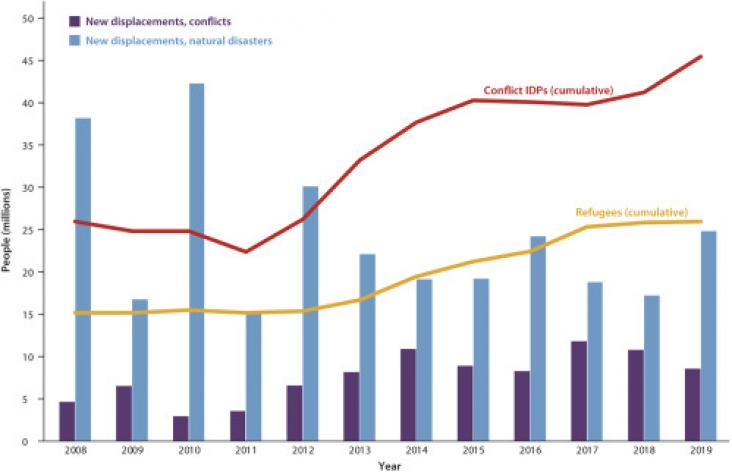
Climate change is reshaping the comparative advantage of regions and hence driving migration flows, principally toward urban areas.
During the last decade, there has been both academic and industry interest in devising technologically advanced solutions for the improvement of mobility of people with a lower-limb amputation. This is due to the increased number of lower-limb amputees and the fact that the majority of current prosthetic solutions are energetically passive devices that are unable to restore full mobility to lower-limb amputees. This book chapter addresses SDG 10 by focusing specifically on lower limb prosthetics for amputees.
This journal article advances SDG 3 and 10 by explaining that racial discrimination has no place in society, and certainly, not in this time of COVID-19 pandemic. As the epicentre of the disease outbreak continues to shift from place to place, urgent measures need to be developed to reduce the increasing cases of racial discrimination.
Background: There are growing numbers of adults aging with long-term mobility disabilities.
This paper studies the role of gender equality in female directors’ efficacy and its subsequent effects on firms.
This chapter addresses SDG 10 and SDG 11 by examining social vulnerability and inequality globally and how that impacts the response to disasters.
Elsevier,
Enhancing Disaster Preparedness, From Humanitarian Architecture to Community Resilience, 2021, Pages 209-222
This chapter supports SDGs 10 and 16 by looking into proposals for policy change regarding the management of legal, socioeconomic, and urban aspects of the Syrian refugee crisis.
Recent guidance from the US Immigration and Customs Enforcement drastically altered the lives of international students in America, especially those who are matriculating.
